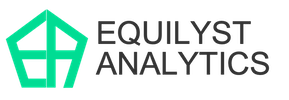Petron Corp., the oil refining giant, continues to cooperate with the government in the fight against smuggling.
The company has started to engage in fuel marking of its facilities.
Petron’s Bataan facility, which has a maximum capacity of 180,000 barrels per day, is, at present, the largest national refinery.
It is meeting a third of the Philippines’ fuel demand.
According to Phil Star, the oil firm already started the fuel marking process in its import facility, which can be found in Misamis Oriental as early as the end of 2019.
According to Petron’s President and CEO, Ramon Ang, all these activities demonstrate the company’s keen commitment to aid the government to combat the problem of smuggling.
He added that the company would continue to coordinate with their fuel marking team to install an automatic injection system in its refinery. This can further support anti-smuggling initiatives.
Petron Willing to Comply But Other Companies Should Too
Like the other Philippine Institute of Petroleum (PIP) members, Petron has long since stated that it sees no problem in supporting the fuel marking program.
It will be willing to support the program as long as everyone is called to do so, or in other words, the program is applied to a level playing field.
As early as 2018, Petron has already been working closely with affected government agencies in fighting oil smuggling.
These agencies are the Department of Finance, the Bureau of Internal Revenue, as well as the controversial Bureau of Customs.
Ang is confident that the fuel marking program is one practical and concrete step towards the fight against fuel smuggling.
This issue has been a strong reason why the economic growth of the nation is not as fast as it could be.
Ang explained that it had been a constant deterrent to growth, affecting not just the economy but also the customers.
Once fuel smuggling effectively stops, customers can access fuel products from 100 percent legal sources.
Program to Solve Shortfall in Revenue Collection
If all fuel companies will cooperate and comply with the program, the PIP is also optimistic that it can stand to solve the shortfall in revenue collection.
Before the Tax Reform for Acceleration and Inclusion (TRAIN) Act, the government was incurring losses of up to P40 billion in government revenues because of petroleum smuggling.
The fuel marking program has a particular role to play in stemming revenue leakages ad losses from oil smuggling.
Under this program, companies will place a molecular marker on all imported, manufactured, and refined oil products.
This will apply to all gasoline, diesel, and kerosene products. This will make it hard to smuggle any of these products.
According to the BOC, all fuel companies have to comply with the program by February 3, which is six months after the launching of this measure.
Once all companies comply, authorities will test the products circulating in the domestic market.
This will cover those oil products in storage tanks, depots, and even in the terminal facilities.
- MA, BDO, ALI, URC, PX: Is Their Dominant Range Pointing to a Breakout? - March 14, 2025
- Tracking Market Sentiment: MTD Ratings for 30 Bluechip Stocks (March 2025) - March 13, 2025
- PSEi Stalls Below 6,260 as Market Awaits Political Shift - March 12, 2025







